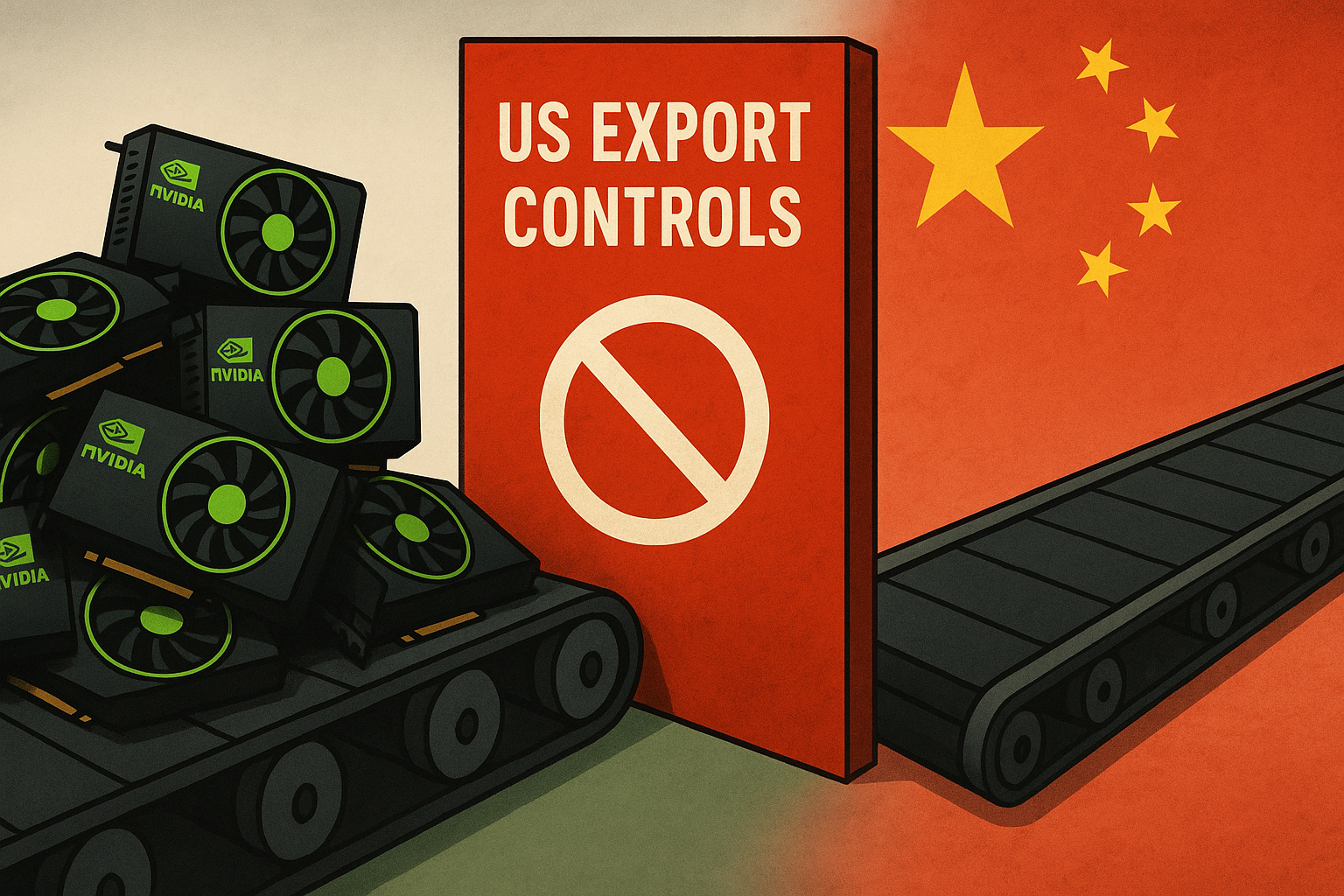Jensen Huang just dropped a bombshell that sent tremors through tech circles last week. In one astonishingly blunt disclosure, Nvidia's leather-jacketed frontman revealed that his company's share in China's AI GPU market has crashed from a dominant 95% to... nothing.
Zero. Zilch. A perfect donut of revenue.
And this isn't about losing some insignificant overseas market. We're talking about China, which until recently represented up to a quarter of Nvidia's data center business—the very segment propelling the company to its trillion-dollar valuation. That's potentially $20 billion in annual revenue that's simply evaporated.
I've tracked semiconductor politics for years, and even I'm stunned by the speed of this collapse.
The situation perfectly illustrates what happens when technology companies build empires on politically precarious foundations. For years, Nvidia enjoyed unfettered access to Chinese markets, becoming the de facto standard for AI infrastructure there. Then Washington decided high-performance chips represented a national security concern, and—well, you can guess the rest.
"This was always the risk," a semiconductor analyst told me yesterday (requesting anonymity because they weren't authorized to speak publicly). "The question wasn't if export controls would tighten, but when."
The regulatory vise has been closing gradually. First came restrictions on Nvidia's A100 chips, then the H100s. Nvidia responded by creating China-specific variants—the A800 and H800—specifically engineered to comply with export rules while still delivering substantial performance. Smart move, or so it seemed.
But here's where things went sideways: those workarounds got banned too.
Look, semiconductor companies operate on multi-year development cycles, designing products that need to remain viable in the market for extended periods. Government policy, on the other hand? That can flip faster than a pancake at a short-order diner.
What fascinates me most is the totality of Nvidia's market share collapse. Not 10%, not even 5%—absolutely nothing. This suggests either remarkable effectiveness of export controls or remarkable honesty from Nvidia's leadership. Possibly both.
The Biden administration must be quietly celebrating this as a policy win. The whole point of these restrictions was to slow China's AI advancement by cutting off access to cutting-edge hardware. Mission accomplished?
Not so fast.
Having visited China's tech hubs several times before the pandemic, I can tell you this: the country has no intention of abandoning AI development because they can't buy American chips. They're pouring billions into domestic alternatives. Huawei's Ascend AI processors are already making significant inroads. Numerous Chinese startups have attracted massive funding to develop homegrown solutions.
(Side note: The irony here is that being cut off might actually accelerate China's semiconductor self-sufficiency—precisely what these controls aimed to prevent long-term.)
For Nvidia, this creates a strategic dilemma of epic proportions. How do you replace 20% of your most profitable business segment overnight?
Jensen Huang isn't exactly sharing his playbook publicly. But the company appears to be doubling down on markets where it still maintains unrestricted access, while also developing technology that might be transferable without violating export rules.
"We support the government... we follow all regulations to the T," Huang emphasized in his recent statements. What else could he say?
The market's reaction has been surprisingly muted so far. Nvidia's stock remains stratospheric—though down from its recent peaks. This suggests investors either believe the China revenue will be replaced by demand elsewhere, or they haven't fully processed what losing access to the world's second-largest economy actually means.
Reminds me of when Google exited China back in 2010. Another tech giant, another massive market, another overnight disappearance. The difference? Google chose to leave. Nvidia got shown the door.
Will this accelerate the creation of two distinct technology ecosystems—one American-led, one Chinese-led? Almost certainly. We're watching the digital Iron Curtain descend in real time.
Man, I sometimes think back to the tech optimism of the early 2000s—when globalization seemed inevitable and technology would supposedly bring us all together. Those were the days, weren't they?
The lesson here might be painfully simple: when your business model depends on political stability between global superpowers... maybe diversify a little?
